Synthetic Biology FSP


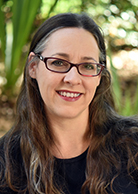 |
A belated welcome to the new year everyone!
The SynBio FSP was a hive of activity towards the end of last year; after the festive season pause, we are back on deck and busy as ever.
I'd like to take the opportunity to congratulate our latest set of synbio leaders who have completed their SynBio FSP Fellowships: Brendan Kidd, Briardo Llorente, Matt Wilding, Michele Fabris, Suvi Honkanen and Tom Williams. We look forward to working with you all in the future.
We completed and submitted our program report to our International Advisory Panel. This was an enormous piece of work and highlighted the remarkable progress of the program since we began. Thank you all for your ongoing contributions to the SynBio FSP! The panel members' reports are now being collated by the Chair and we will hear back shortly. We are now preparing for submissions of the next FSP program application. Many of you have been asked to contribute to the development of this proposal and we are most appreciative of your engagement.
We are currently developing a short stakeholder survey to help us better understand the impact of the SynBio FSP on the synthetic biology community in Australia. A separate link will be sent out for you to complete this - we certainly value your opinion!
Despite the havoc that the pandemic has wreaked, opportunities have also arisen: there is a renewed recognition of the importance of biology and biological engineering, sovereign manufacturing and value addition, the need for a capacity for rapid responses to emerging threats and, in particular, the importance of science-based policy. Synthetic biology has the potential to influence all of these areas, and it is exciting to think where and how this opportunity will be channelled.
We recognise that the global pandemic continues to affect many people and invite you to reach out to the SynBio FSP if your project has experienced impacts.
In the sections below, we have compiled some news items, current training and job opportunities, upcoming events, and a list of SynBio FSP publications.
All the best,
Claudia
Claudia Vickers
Director
CSIRO Synthetic Biology Future Science Platform
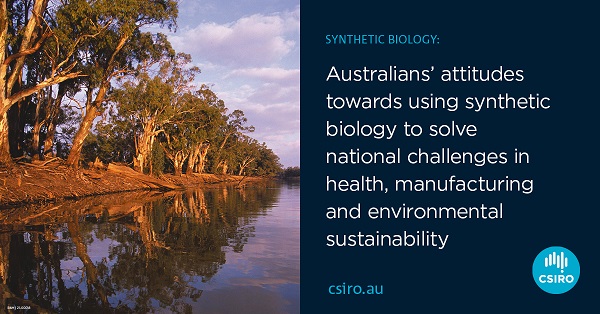
The Maximising Impact Application Domain released the outcomes of the National Baseline Survey of Attitudes Towards Synthetic Biology last month. This seminal work provides an important first step in assessing public attitudes towards the use of synthetic biology across seven case studies.
While general understanding of synthetic biology was found to be relatively low, the survey showed that Australians are broadly "hopeful", "excited" and "curious" about how the emerging field of synthetic biology could address some of the greatest challenges facing our country.
An overview of the work can be found on our website and a media release with links to the study outcomes is also available.
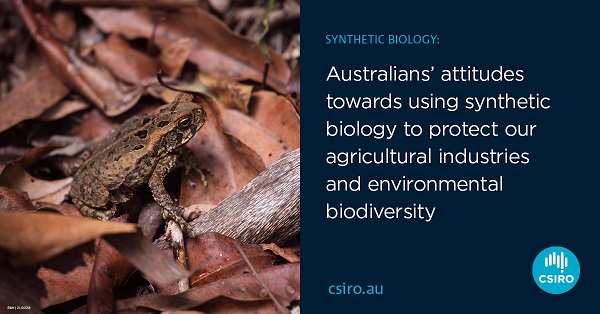
Following on from the recently launched reports on public attitudes to synthetic biology, a new online survey began and was promoted via CSIRO social media channels.
The new survey was based around future innovations in synthetic biology to combat problems like feral pest control using gene drive research. Feral pest management is a serious and complex issue across many parts of Australia but the social science research team wanted to know what the public perceptions of synbio were in solving such problems.
The survey has now closed and the researchers are analysing the data. Stay tuned for their results, and future surveys on public attitudes.
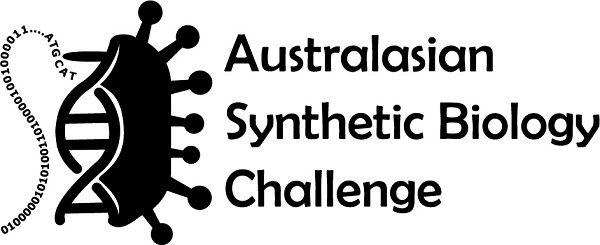
The AusSynBio Challenge is back for a second year!
After a successful pilot year, we’ve more than doubled the size of the challenge with 10 teams submitting EOI’s for the 2021 challenge. In addition, we now have new partnerships with IDT, New England Biolabs, Main Sequence Ventures and Wrays, on top of amazing support from our existing partners: Twist Bioscience, Blackbird Ventures and the CSIRO Synthetic Biology Future Science Platform.
We’re also excited to announce we’ll have more support for the 2021 teams with mentoring and talks from Wrays, Main Sequence Ventures, Blackbird’s Giants program and a dedicated programme manager for the AusSynBio Challenge kindly supported by the CSIRO SynBio FSP.
Lastly, you may have noticed we have a new logo and we’ve also made a small change to our name to reflect our ambition to be the epicentre for supporting synbio talent in the Australasian region.
Thank you to all who participated or joined the Final Showcase to hear our 2020 teams present their work last year. We can’t wait to reveal our 2021 teams and the exciting projects they will be working on! To stay up to date with all that’s happening with the Challenge, keep an eye out for announcements throughout the year on our website (www.aussynbiochallenge.org) and Twitter @SynBioChallenge or reach out to us at aussynbiochallenge<at>gmail.com.

The CSIRO Futures Team is currently developing a national synthetic biology roadmap. The roadmap seeks to provide a commercially-focused and strategic view of how Australia can pursue industry growth opportunities that are underpinned by emerging synthetic biology approaches.
A survey was conducted in February this year to capture the views of key industry, research and government stakeholders about the future of synthetic biology. The project team is continuing to hold additional interviews and develop economic analysis to supplement these early insights.
Many of you have already participated in this road-mapping exercise and we thank you for your contributions to date. If you would like to know more about this project, or contribute through an interview or review, please contact dominic.banfield@csiro.au.
The report is planned for a public release in July 2021.
Photo credit: Deepak Choudhary (Unsplash)
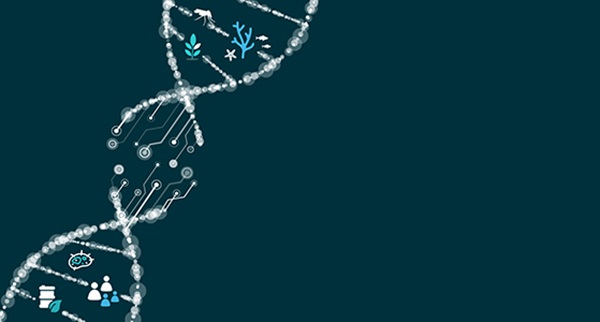
Synthetic Biology Fellowship
We have a Synthetic Biology Fellowship to work on combining synthetic biology and synthetic chemistry, closing 22 March.
This position is open to people with full-time equivalent experience of 3 years, post PhD (taking into account any career breaks).
Note that the closing date has been extended by a week due to an error in the advertisement.
CSIRO Publishing is pleased to announce that registrations are now open for the following series of workshops for CSIRO staff and affiliates:
|
Writing Winning Scientific Proposals |
Publishing with Impact |
|
Essentials of Writing a Paper |
Writing Effective Reports |
These workshops are open to all CSIRO staff and to SynBio FSP affiliates, including PhD students and fellows, and the cost for attendance will be supported by the SynBio FSP.
To register for any of these workshops, please visit CSIRO's People Hub, click on Learning and use the search term 'writing' in the Catalog search bar to find the full list of writing workshops.
There is a 10 per cent discount for groups of three or more for a course on the same cost code - register using the links above and then email publishing.workshops@csiro.au with the list of names in the group to request the discount. Please email SynBioFSP@csiro.au to request a cost code for registration.
SynBio FSP Seminar Series
The SynBio FSP has launched our monthly seminar series, which is advertised through this mailing list. The series has proved extremely popular and we've had fantastic presentations so far. We look forward to seeing you at the next one!
Conferences
Many conferences were cancelled last year and are being run either as in-person or online events this year. Online conferences can mean greater accessibility to us in Australia but remember to block out your diary, especially if the conference is being run during our night time - operating 24/7 is challenging!
Conferences of interest to the synbio community:
* Synthetic Biology and Biotechnology 2021 - 29-31 May, Indonesia; virtual. Workshops will be included in the programming.
* Synthetic Biology: Engineering, Evolution & Design (SEED) - 15-18 June, Atlanta, Georgia. Currently looks to be in-person but online options may become available.
* Metabolic Engineering 14 - 11-15 July, Honolulu, Hawaii. Combined in-person and virtual event.
* German Conference on Synthetic Biology (GCSB) - Engineering Living Systems; 13-17 September, Munich. Currently looks to be an in-person conference.
* AICHE Optogenetic Technologies and Applications - 5-7 December; virtual.
* Synthetic Biology UK 2021 - 22-23 November, Nottingham. Currently looks to be an in-person conference.
* The SynBio FSP conference dates have not yet been set – we will keep you informed.
* The Synthetic Biology Australasia conference dates have not yet been announced – keep an eye on their 2021 Conference website. Sponsorship opportunities are available.
* SynBioBeta 2021 has not yet been announced – keep an eye on their website.
* GRC Plant Metabolic Engineering has been deferred to 2023.
* GRC Synthetic Biology: Translating Fundamental Biological Principles into New Functions and Applications has been deferred to 2023.
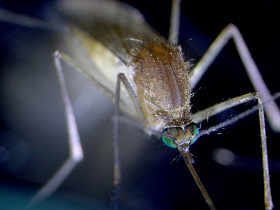 " After="" />
" After="" />
A national survey has been conducted by CSIRO’s Synthetic Biology Future Science Platform as an important first step in measuring public attitudes towards synthetic biology. The survey draws on the views of more than 8,000 Australians, and researchers are examining the data to determine current attitudes to these emerging technologies.
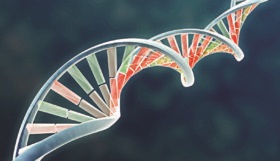 " After="" />
" After="" />
Complex national challenges, such as those in managing pest species, are being addressed through an evolving area of synthetic biology. Research into gene drive organisms (GDOs) is taking place in laboratories all over the world and a diverse group of GDO researchers have recently called for standard field trial criteria to help assess and manage any potential impacts of this future work.
Angel, P. W., Rajab, N., Deng, Y., Pacheco, C. M., Chen, T., Lê Cao, K.-A., Choi, J., & Wells, C. A. (2020). A simple, scalable approach to building a cross-platform transcriptome atlas. PLOS Computational Biology, 16(9), e1008219. doi:10.1371/journal.pcbi.1008219
Barolo, L., Abbriano, R. M., Commault, A. S., George, J., Kahlke, T., Fabris, M., Padula, M. P., Lopez, A., Ralph, P. J., & Pernice, M. (2020). Perspectives for Glyco-Engineering of Recombinant Biopharmaceuticals from Microalgae. Cells, 9(3). doi:10.3390/cells9030633
Buerger, P., Alvarez-Roa, C., Coppin, C. W., Pearce, S. L., Chakravarti, L. J., Oakeshott, J. G., Edwards, O. R., & van Oppen, M. J. H. (2020). Heat-evolved microalgal symbionts increase coral bleaching tolerance. Science Advances, 6(20), eaba2498. doi:10.1126/sciadv.aba2498
Chesterfield, R. J., Vickers, C. E., & Beveridge, C. A. (2020). Translation of Strigolactones from Plant Hormone to Agriculture: Achievements, Future Perspectives, and Challenges. Trends in Plant Science. doi:https://doi.org/10.1016/j.tplants.2020.06.005
Chesterfield, R. J., Whitfield, J. H., Pouvreau, B., Cao, D., Alexandrov, K., Beveridge, C. A., & Vickers, C. E. (2020). Rational Design of Novel Fluorescent Enzyme Biosensors for Direct Detection of Strigolactones. ACS Synthetic Biology, 9(8), 2107-2118. doi:10.1021/acssynbio.0c00192
Commault, A. S., Kaur Walia, N., Fabris, M., Barolo, L., Siboni, N., Adriaans, J., Ralph, P. J., & Pernice, M. (2020). Effect of biphasic temperature regime on therapeutic recombinant protein production in the green alga Chlamydomonas reinhardtii. Algal Research, 50, 101997. doi:https://doi.org/10.1016/j.algal.2020.101997
Fabris, M., Abbriano, R. M., Pernice, M., Sutherland, D. L., Commault, A. S., Hall, C. C., Labeeuw, L., McCauley, J. I., Kuzhiuparambil, U., Ray, P., Kahlke, T., & Ralph, P. J. (2020). Emerging Technologies in Algal Biotechnology: Toward the Establishment of a Sustainable, Algae-Based Bioeconomy. Frontiers in Plant Science, 11. doi:ARTN 27910.3389/fpls.2020.00279
Gurung, J. P., Gel, M., & Baker, M. A. B. (2020). Microfluidic techniques for separation of bacterial cells via taxis. Microb Cell, 7(3), 66-79. doi:10.15698/mic2020.03.710
Holowko, M. B., Frow, E. K., Reid, J. C., Rourke, M., & Vickers, C. E. (2020). Building A Biofoundry. Synthetic Biology. doi:10.1093/synbio/ysaa026
Jaramillo-Madrid, A. C., Abbriano, R., Ashworth, J., Fabris, M., Pernice, M., & Ralph, P. J. (2020). Overexpression of Key Sterol Pathway Enzymes in Two Model Marine Diatoms Alters Sterol Profiles in Phaeodactylum tricornutum. Pharmaceuticals, 13(12), 481.
Jaramillo-Madrid, A. C., Ashworth, J., Fabris, M., & Ralph, P. J. (2020). The unique sterol biosynthesis pathway of three model diatoms consists of a conserved core and diversified endpoints. Algal Research, 48, 101902. doi:https://doi.org/10.1016/j.algal.2020.101902
Lai, Y.-W., Ridone, P., Peralta, G., Tanaka, M. M., & Baker, M. A. B. (2020). Evolution of the Stator Elements of Rotary Prokaryote Motors. Journal of Bacteriology, 202(3), e00557-00519. doi:10.1128/jb.00557-19
Laird, S., Wynberg, R., Rourke, M., Humphries, F., Muller, M. R., & Lawson, C. (2020). Rethink the expansion of access and benefit sharing. Science, 367(6483), 1200-1202. doi:10.1126/science.aba9609
Lieven, C., Beber, M. E., Olivier, B. G., Bergmann, F. T., Ataman, M., Babaei, P., Bartell, J. A., Blank, L. M., Chauhan, S., Correia, K., Diener, C., Drager, A., Ebert, B. E., Edirisinghe, J. N., Faria, J. P., Feist, A. M., Fengos, G., Fleming, R. M. T., Garcia-Jimenez, B., Hatzimanikatis, V., van Helvoirt, W., Henry, C. S., Hermjakob, H., Herrgard, M. J., Kaafarani, A., Kim, H. U., King, Z., Klamt, S., Klipp, E., Koehorst, J. J., Konig, M., Lakshmanan, M., Lee, D. Y., Lee, S. Y., Lee, S. J., Lewis, N. E., Liu, F., Ma, H. W., Machado, D., Mahadevan, R., Maia, P., Mardinoglu, A., Medlock, G. L., Monk, J. M., Nielsen, J., Nielsen, L. K., Nogales, J., Nookaew, I., Palsson, B. O., Papin, J. A., Patil, K. R., Poolman, M., Price, N. D., Resendis-Antonio, O., Richelle, A., Rocha, I., Sanchez, B. J., Schaap, P. J., Sheriff, R. S. M., Shoaie, S., Sonnenschein, N., Teusink, B., Vilaca, P., Vik, J. O., Wodke, J. A. H., Xavier, J. C., Yuan, Q. Q., Zakhartsev, M., & Zhang, C. (2020). MEMOTE for standardized genome-scale metabolic model testing (vol 38, pg 272, 2020). Nature Biotechnology. doi:10.1038/s41587-020-0477-4
Liu, T., Peng, B., Huang, S., & Geng, A. (2020). Recombinant xylose-fermenting yeast construction for the co-production of ethanol and cis,cis-muconic acid from lignocellulosic biomass. Bioresource Technology Reports, 9, 100395. doi:https://doi.org/10.1016/j.biteb.2020.100395
Lu, Z., Peng, B., Ebert, B. E., Dumsday, G., & Vickers, C. E. (2021). Auxin-mediated protein depletion for metabolic engineering in terpene-producing yeast. Nature Communications, 12(1), 1051. doi:10.1038/s41467-021-21313-1
Neves, D., Vos, S., Blank, L. M., & Ebert, B. E. (2020). Pseudomonas mRNA 2.0: Boosting Gene Expression Through Enhanced mRNA Stability and Translational Efficiency. Frontiers in Bioengineering and Biotechnology, 7. doi:ARTN 458 10.3389/fbioe.2019.00458
Nies, S. C., Dinger, R., Chen, Y., Wordofa, G. G., Kristensen, M., Schneider, K., Buchs, J., Petzold, C. J., Keasling, J. D., Blank, L. M., & Ebert, B. E. (2020). Systems Analysis of NADH Dehydrogenase Mutants Reveals Flexibility and Limits of Pseudomonas taiwanensis VLB120's Metabolism. Appl Environ Microbiol, 86(11). doi:10.1128/AEM.03038-19
Pouvreau, B., Blundell, C., Vohra, H., Zwart, A. B., Arndell, T., Singh, S., & Vanhercke, T. (2020). A Versatile High Throughput Screening Platform for Plant Metabolic Engineering Highlights the Major Role of ABI3 in Lipid Metabolism Regulation. Frontiers in Plant Science, 11(288). doi:10.3389/fpls.2020.00288
Rourke, M., Eccleston-Turner, M., Phelan, A., & Gostin, L. (2020). Policy opportunities to enhance sharing for pandemic research. Science, 368(6492), 716-718. doi:10.1126/science.abb9342
Rourke, M. F. (2020). Restricting Access to Pathogen Samples and Epidemiological Data: A Not-So-Brief History of “Viral Sovereignty” and the Mark It Left on the World. In M. Eccleston-Turner & I. Brassington (Eds.), Infectious Diseases in the New Millennium: Legal and Ethical Challenges (pp. 167-191). Cham: Springer International Publishing.
Teem, J. L., Alphey, L., Descamps, S., Edgington, M. P., Edwards, O., Gemmell, N., Harvey-Samuel, T., Melnick, R. L., Oh, K. P., Piaggio, A. J., Saah, J. R., Schill, D., Thomas, P., Smith, T., & Roberts, A. (2020). Genetic Biocontrol for Invasive Species. Frontiers in Bioengineering and Biotechnology, 8(452). doi:10.3389/fbioe.2020.00452
van Wyk, N., Kroukamp, H., Espinosa, M. I., von Wallbrunn, C., Wendland, J., & Pretorius, I. S. (2020). Blending wine yeast phenotypes with the aid of CRISPR DNA editing technologies. International Journal of Food Microbiology, 324, 108615. doi:https://doi.org/10.1016/j.ijfoodmicro.2020.108615
Winter, D. L., Iranmanesh, H., Clark, D. S., & Glover, D. J. (2020). Design of Tunable Protein Interfaces Controlled by Post-Translational Modifications. ACS Synthetic Biology, 9(8), 2132-2143. doi:10.1021/acssynbio.0c00208